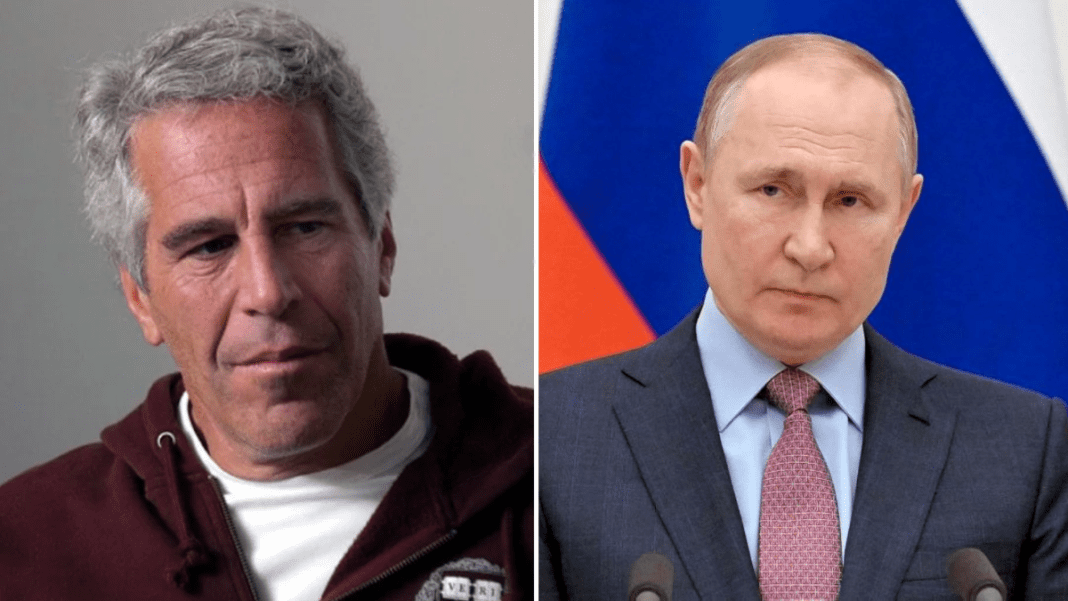Newly released emails have revealed the vast network of the late financier Jeffrey Epstein and his claims of political influence. Among hundreds of emails made public by congressional investigators, one exchange shows Epstein saying he could help Russian officials understand President Donald Trump.
In June 2018, nearly a month before Trump met Russian leader Vladimir Putin in Helsinki, Epstein emailed Thorbjorn Jagland, former prime minister of Norway and then head of the Council of Europe. He wrote that Russia’s Foreign Minister Sergei Lavrov could “get insight on talking to me” if he wanted to understand Trump. Epstein also said he had spoken about Trump with Vitaly Churkin, Russia’s ambassador to the United Nations before his death in 2017. “Churkin was great,” Epstein wrote. “He understood Trump after our conversations. It is not complex. He must be seen to get something—it’s that simple.”
The emails show Epstein presenting himself as someone who understood Trump’s behavior and motivations. Even after his conviction for sex crimes, he continued to contact high-ranking figures and claimed insight into U.S. politics and foreign relations.
Powerful Connections and Global Correspondence
Epstein’s contacts extended far beyond Russia. The emails show him corresponding with influential figures and business leaders about Trump’s first-term policy decisions and international reactions.
After Trump’s 2018 meeting with Putin, Larry Summers, former U.S. Treasury Secretary, wrote to Epstein: “Do the Russians have stuff on Trump? Today was appalling even by his standards.” Epstein replied, “My email is full with similar comments. Wow.” He added that Trump likely thought the meeting “went super well”, believing he had “charmed his adversary”, though he had “no idea of the symbolism”. Epstein called Trump’s actions “predictable”.
Days later, Epstein wrote to former Trump adviser Steve Bannon, telling him that if he wanted influence in Europe, he had to spend time there personally. “Europe by remote doesn’t work,” Epstein said. He offered to arrange one-on-one meetings with foreign leaders but warned, “The fear is that you gin up their hopes and emotions and then abandon them.”
Epstein also boasted about his ties in the Middle East. In one email to billionaire Tom Pritzker, he said Saudi Crown Prince Mohammed bin Salman (MBS) had sent him a tent “carpets and all”. Pritzker jokingly replied that it might be “code for ‘I love you’ or maybe ‘go pound sand.’”
Leaked Documents Uncover Epstein’s Hidden Hand in Ehud Barak’s African Security Missions
In another exchange, Sultan Ahmed bin Sulayem, a businessman from the United Arab Emirates, asked Epstein in early 2017 if he should attend Trump’s inauguration. Sulayem said he had been invited by Trump associate Tom Barrack, who oversaw the event. Epstein said the inauguration would be “very crowded” but could be a good networking opportunity. Sulayem asked if it would be possible to “shake hand with Trump.” It’s unclear if Epstein responded.
Inside the Released Emails
The emails highlight Epstein’s efforts to remain relevant among world leaders. In 2017, Thorbjorn Jagland had even invited Epstein to France to help him understand Trump and the shifts in American politics. Epstein appeared fascinated by global affairs and often discussed Trump’s actions with his contacts.
Following the release of the emails, White House Press Secretary Karoline Leavitt said they “prove absolutely nothing other than President Trump did nothing wrong.” Trump later called it the “Jeffrey Epstein Hoax”, saying his political opponents were using it to distract from the government shutdown.
The newly released messages show Epstein’s attempts to portray himself as an insider with access to global power circles. While it remains unclear if any of his suggested meetings or discussions actually happened, the emails reveal how Epstein used his connections to maintain influence and attention among powerful figures around the world.
